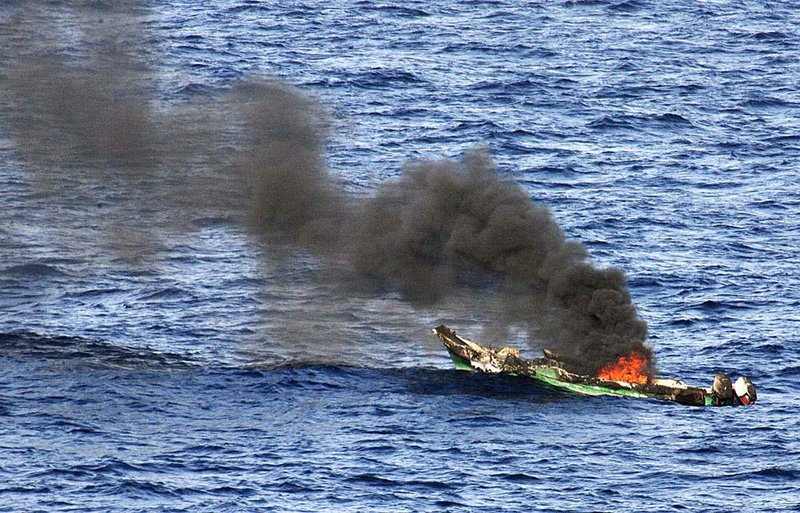NAIROBI, Kenya — Private security firms are storing their guns aboard floating armories in international waters so ships that want armed anti-piracy guards for East Africa’s pirate-infested waters can cut costs and circumvent laws limiting the import and export of weapons, industry officials say.
Companies and legal experts say the operation of the armories is a “legal gray area” because few, if any, governments have laws governing the practice. Some security companies have simply not informed the governments of the flags their ships are flying, industry officials said.
Some members of the private-security sector are urging governments and industry leaders to impose standards on the unchecked practice of storing weapons offshore to equip anti-pirate forces off Somalia’s coast.
Storing guns on boats offshore took off as a business last year. Britain, where many of the operators are from, is investigating the legality of the practice, which has received little publicity outside of shipping-industry circles.
Floating armories have become a viable business in the wake of increased security practices by the maritime industry, which has struggled for years to combat attacks by Somali pirates. But those in the industry say the standards vary widely.
Governments and industry leaders “need to urgently address standards for floating armories and get flag state approval,” said Nick Davis of the Maritime Guard Group “Everything has got to be secured correctly, recorded, bonded, the correct locks, and so on. It’s not just a case of find a room, put some weapons in it and everybody chill out.”
Some floating armories did not have proper storage for weapons, enough watchmen, or enough space for guards to sleep indoors, forcing them to sleep on deck, he said.
In the absence of applicable laws, he said, “companies are just being economical with the truth.”
Davis said his company operates two tugs as floating armories and carefully maintains logbooks for his company’s hundreds of weapons and records for each shot fired. He did not allow other companies to rent out space on his tugs because of regulatory problems, he said, but hopes to do so soon and has sent out advertisements.
“Ships have to use armed guards, yet none of the governments want to provide an ethical and accountable way of using firearms,” he said.
There are between 10 and 12 ships operating as floating armories at any one time. About half a dozen are in the Red Sea, three off the United Arab Emirates and a couple off the island nation of Madagascar, said Thomas Jakobsson of Sea Marshals Ltd.
“Many companies are too small to be able to comply with regulations. It costs a lot of money,” he said. His company only used floating armories licensed by the Djibouti government and flew the flag of landlocked Mongolia, he said. He believed most of the rest were not operating legally, he said.
The increase in the use of floating armories comes as the number of shootouts rises between suspected pirates and private security companies. In February, two Italian marines shot and killed two Indian fishermen the Italians had mistaken for pirates. The investigation may set legal precedents for future shootings by armed ship guards.
A ship that uses a floating armory will pick up weapons from it at the beginning of its travels through dangerous waters, then drop them of to another floating armory at the end of the dangerous part of the voyage.
Companies use floating armories because it’s cheaper for clients than having to take their ships into port to pick up escorts and because there are so many restrictions on taking weapons into the region around Somalia. Several companies said Middle Eastern nations such as Saudi Arabia, Egypt and Yemen were particularly sensitive about foreigners taking in weapons since the start of political uprisings in the region.
Lawyer Alan Cole, the head of the anti-piracy program at the United Nations Office on Drugs and Crime, also said taking arms into coastal nations can be a complex process.
Regulations vary from country to country. In the island nation of the Seychelles, police board the ships and lock the armories, he said. In Mauritius, weapons must be taken off a ship as soon as it is docked and stored in the police lockup.
Regulations can change from day to day, becoming so fluid that ships may put out to sea with armed guards onboard only to find rules have changed once the ship has reached its destination. Egypt, Oman and Kenya all have changed the rules regarding the transport of firearms within the past month, Davis said.
Front Section, Pages 5 on 03/23/2012
